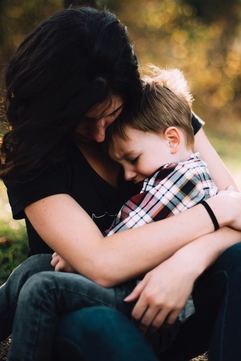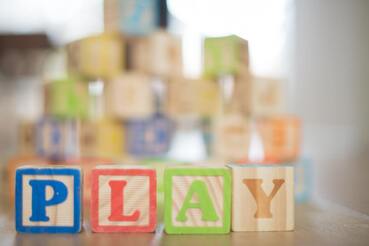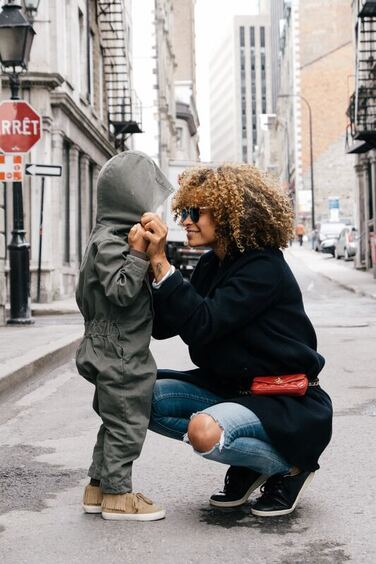Learning how to engage socially can be a long process. Rather than focusing on it all at once, taking one interaction at a time allows you to break down the process and make it less overwhelming. In this way, you are providing opportunities for your children to have success engaging with their peers and supporting the development of social-emotional skills.
The following steps may help you support positive social experiences for children with ADHD: Small Steps that Can go A Long Way These are not “normal” times and so we are all adjusting and trying to figure out our new normal. For parents, there is a double challenge of finding this new normal for yourselves as well as our children. But know that you are not alone in this journey and there are a few principles that can help guide you at this challenging time. How to Incorporate Mindfulness into Your Daily Parenting Practices and Manage Challenges
 Azine Graff, PsyD When we think of spending time with our children, we probably consider engaging in a scheduled or structured activity. We may even have back-to-back scheduled activities to fill our weekend, which can be exhausting for parent and child alike. But then we’re missing out on a very different and important need when we over-schedule ourselves: The need for time together with no agenda. It can be challenging to shift from being busy all the time to slowing down. It is a lot easier, in theory, to put away our phones, to say “no” to another birthday party, to postpone running errands, or to hold off on feeling productive. As you begin to make room in your schedule for more free time with each other, you are investing in your child and your relationship, and it will pay off now and in the future. This can look like sitting down to play with your child and allowing them to lead the play. The time you spend with them and follow their lead will help them feel empowered in their lives, give them a chance to feel in control over one aspect of their lives, and make them more likely to willfully follow your requests when they need to. These moments that you spend playing, joking and laughing with your child also sends them a message--you are showing them that you love them, value them and enjoy their presence. Know that despite what they may say when they are distressed, they love you, respect you and enjoy being in connection with you. They might just struggle to show it at times, especially if they have no breaks and have a tough time transitioning between the several activities crammed into a day. But small changes can go along way. Continue reading on Mother.ly  Azine Graff, PsyD It can be hard to consider hugging our child when they are acting out. There’s this fear of reinforcing the behavior, and so we have been taught to punish, remove toys, ignore the behavior, and respond with a poker face. But consider a time when you had a rough day, snapped at your partner over something trivial, and all you felt you really needed to melt away the stress was a hug or some comfort. Did you ask for a hug? If so, then what a gift you and your partner have to be vulnerable and communicate so openly. If you didn’t ask, think about why? Maybe what you needed did not even cross your mind. Maybe you were too heated and on the defense to ask. When we are in a heated moment or feeling a surge of our emotions, it makes it much harder to think rationally. When considering our children and how they are developing their prefrontal lobe (the part that does a lot of the planning and decision-making), it then makes sense that they have much more difficulty in expressing themselves calmly when under stress. Continue reading on Mother.ly |
Categories
All
Disclaimer: Information and resources provided on the internet by Harmony in Parenting - A Psychology Center, Inc. does not constitute psychotherapy, a replacement for a therapeutic relationship, or a substitute for mental health or medical care. If having a psychiatric emergency, please visit your nearest emergency room or call 911. |
NOW OFFERING ONLINE THERAPY
(818) 810-7079 | 16550 Ventura Blvd UNIT 318 Encino, CA 91436
Harmony in Parenting - A Psychology Center, Inc.
16550 Ventura Blvd UNIT 318 Encino, CA 91436
(818) 810-7079
Harmony in Parenting offers therapy for children, parents, and adults residing in Encino, Sherman Oaks, Studio City, Tarzana, and Woodland Hills.
Telehealth and video therapy services are available for residents of California.
© 2024 HARMONY IN PARENTING - A PSYCHOLOGY CENTER, INC. ALL RIGHTS RESERVED.
DISCLAIMER PRIVACY POLICY NOTICE OF PRIVACY PRACTICES TERMS OF SERVICE GOOD FAITH ESTIMATE NOTICE


